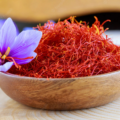Neurotic, Paranoid, Disordered, Angry, Clean, Repetitive, Obsessive, Arrogance, Irritating.
Root Cause of Disease
Obsessive-Compulsive Disorder, OCD, is an anxiety disorder and is characterized by recurrent, unwanted thoughts (obsessions) and/or repetitive behaviors (compulsions). Repetitive behaviors such as hand washing, counting, checking, or cleaning are often performed with the hope of preventing obsessive thoughts or making them go away. Obsessive-compulsive disorder (OCD) is a common, chronic, and long-lasting disorder in which a person has uncontrollable, reoccurring thoughts (“obsessions”) and/or behaviors (“compulsions”) that he or she feels the urge to repeat over and over.
Symptoms
People with OCD may have symptoms of obsessions, compulsions, or both. These symptoms can interfere with all aspects of life, such as work, school, and personal relationships. Obsessions are repeated thoughts, urges, or mental images that cause anxiety. Common symptoms include:
- Fear of germs or contamination
- Unwanted forbidden or taboo thoughts involving sex, religion,or harm
- Aggressive thoughts towards others or self
- Having things symmetrical or in a perfect order
Compulsions are repetitive behaviors that a person with OCD feels the urge to do in response to an obsessive thought. Common compulsions include:
- Excessive cleaning and/or handwashing
- Ordering and arranging things in a particular, precise way
- Repeatedly checking on things, such as repeatedly checking to see if the door is locked or that the oven is off
- Compulsive counting.
Causes
The cause of obsessive-compulsive disorder isn’t fully understood. Main theories include:
- Biology: OCD may be a result of changes in your body’s own natural chemistry or brain functions.
- Genetics: OCD may have a genetic component, but specific genes have yet to be identified.
- Learning: Obsessive fears and compulsive behaviors can be learned from watching family members or gradually learned over time.
Home Remedies To Treat OCD
Remedy -1: Borage Oil

Borage oil is a natural remedy made from the seeds of the Borago officinalis plant. The oil is high in gamma linoleic acid (GLA), which is an essential fatty acid that must be obtained from your diet. It’s commonly used to help reduce the inflammation that is linked to many chronic diseases. Its anti-inflammatory effects may be why it helps reduce OCD.
Product Link: Borage Oil
Remedy -2: Ashwagandha

Ashwagandha causes anti-anxiety effects, reduces OCD-like behavior and improves stress tolerance in rats. So it’s a pretty impressive herbal remedy for OCD and anxiety.
Product Link: Ashwagandha
Remedy -3 : Saffron

Saffron contains Safranal, the chief bioactive constituent which imparts anxiety relieving properties to saffron. It also gives the saffron its typical fragrance.
Procedure:
- Take saffron strands and add it to a cup of boiling water
- Let it steep for some minutes
- Filter and consume this fragrant drink as you relax
Product Link: Saffron
Remedy -4: Kava Root

This is a herbal medicine that is found in clinical trials to reduce mild depression, restlessness, nervous tension, and anxiety. This home remedy has been used for hundreds of years in Hawaii, the Micronesia Islands, and Polynesia. The key component in kava is kavalactone, which stimulates the production of GABA (gamma-aminobutyric acid) and serotonin in the body which is producing a calming effect on the body.
Usually, it is recommended to take kava from water-based extract at less than 250 mg per day. This home remedy is not recommended to be taken during pregnancy or lactation.
Remedy -5: Music therapy

That music can help people who suffer from depression or anxiety. Many studies are shown that music can help patients to focus on something besides their obsessive thoughts, redirect their thoughts entirely or simply reduce stress levels. Music therapy will alleviate symptoms of obsession and anxiety, so if you suffer from obsessive-compulsive disorder, you can add this method as your natural treatment.
Remedy -6: Milk thistle

This home remedy has silymarin, which is a flavonoid complex that has been shown to increase the levels of the mood-related neurotransmitter serotonin in mice.
In one eight–week study was found that 600 mg of milk thistle extract was nearly as effective as 30 mg of fluoxetine in managing the symptoms of obsessive-compulsive disorder.
Preventions
There’s no sure way to prevent obsessive-compulsive disorder. However, getting treatment as soon as possible may help prevent OCD from worsening and disrupting activities and your daily routine.




